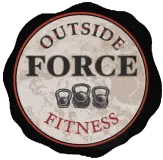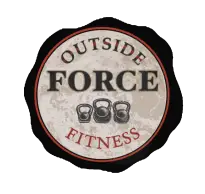A low-carb diet is one of the most popular approaches to weight loss. While it does bring a lot of benefits to the table, it also has a few risks attached to it.
So, what are the risks of going low carb? Side effects can include headaches, constipation, and fatigue, among others.
This guide will help you think through what you may encounter by switching to a low carb eating plan, so stick around.
What Is the Purpose of Going Low Carb?
One of the most common reasons for going low carb is weight loss. Low-carb diets are among the easiest and simplest ways to do so.
This type of diet does a great job of helping people burn visceral fat. This is the fat that’s found around the stomach/abdominal area, as well as surrounding most organs.
Excess visceral fat in these areas can become harmful and cause problems with your body’s metabolism. If not addressed quickly, these excess fats can lead to more serious issues such as obesity, cancer, heart disease, and type-2 diabetes.
Aside from its effect on weight loss, going low carb also has other benefits.
For example, several references from Harvard T. H. Chan School of Public Health’s Department of Nutrition’s page, The Nutrition Source, show that low-carb diets can help your cardiovascular system. They help promote good cholesterol levels and decrease blood pressure.
How Does Going Low Carb Promote Weight Loss?

Some studies support low-carb diets’ claim as a successful weight loss approach.
What we do know from countless studies on the subject, is that there are many factors at play that contribute to its general success when it comes to shedding extra pounds.
One of the biggest factors involves insulin, a hormone that serves a lot of functions in the body, including regulating metabolic fuel, fat storage, and fat burning.
Now, when there’s a lower carb intake, this causes a dip in insulin levels as well. Lower levels of this hormone generally mean that fat isn’t easily stored.
Instead, it’s made more readily available for the body to burn during energy-expending activities.
I could also be explained like this: In the presence of insulin, your body isn’t going to be burning fat. So, don’t eat things that cause your body to release insulin. What causes your body to release insulin? Carbohydrates and sugar.
What Are the Most Common Risks of Going Low Carb?
As with most diets, going low carb comes with risks and side effects. Some of the short-term ones include headaches, muscle cramps, constipation, fatigue, or other metabolic issues.
Other risks include the following:
- Nutritional deficiencies
- Difficulty engaging in physical activities
- “Keto” breath or bad breath
- Constipation
- Difficulty sleeping
Since our bodies won’t react the same way to dietary changes, some side effects may appear to others but not to you, and vice versa.
Unfortunately, there’s little research available on the long-term effects of low-carb diets. Further, most of these side effects are also associated with carbohydrate withdrawal.
What Is Carbohydrate Withdrawal?
Carbohydrate withdrawal occurs shortly after you cut your carbohydrates down to 20-50 grams per day. Although you could still feel the effects if you cut it down to 100 grams per day if your diet was mainly carbohydrates anyway. I’ve seen some extreme cases.
Carbohydrate withdrawal continues until your body reaches a state called ketosis. This is a state where your body burns fat instead of glucose stores for energy.
Side effects from the transition are commonly referred to as “keto flu” since the symptoms that manifest are generally similar to the flu: fatigue, frequent headaches, and general weakness.
In addition, some people may also experience some of the symptoms in the previous section, particularly constipation, muscle spasms, and headaches.
Here are some of the other symptoms that might manifest during carb withdrawal:
- Sudden mood changes
- Intense cravings
- Nausea
You don’t want to do heavy physical exercise during this period of transition to burning mainly fat for energy as it just makes the “carb withdrawal” symptoms even worse.
Can You Train Hard While Restricting Carbs?
One study tested ultra-endurance athletes with low-carb diets against those with high-carb diets. This is one of the recent studies which shows that carbs aren’t strictly needed for exercising.
So, in short, yes, you can still stay active while restricting carbs.
However, if you’re planning on pushing your body, training hard, and doing intense workouts, restricting carbs isn’t recommended. It definitely hinders your performance in high-intensity activities.
Your body needs energy— in the case of intense workouts, you want it to be carbs.
How Low Is a Low-Carb Diet?
According to the Mayo Clinic, the typical low-carb diet contains only around 0.7 to 2.0 oz of carbohydrates daily.
Since nutritional imbalance is one of the common risks associated with low-carb diets, you want to still consume the right foods. Even if you’re restricting your carb count, the amount that you allow yourself to eat should still come from healthy sources.

Some of the healthy food items that you can integrate into your low-carb diet include:
- Beef
- Chicken
- Pork
- Lamb
- Eggs
- Spinach
- Cauliflower
- Nuts and seeds
- High-fat dairy (cheese, Greek yogurt, etc.)
You’ll notice that low-carb diets usually involve a lot of protein sources—such as minimally or non-processed meat—and non-starchy vegetables.
Should I Consider Carb Cycling?
Carb cycling is a dietary technique that alternates or cycles through high-carb and low-carb diets. The goal is to essentially supply the right amount of carbs that your body needs for the energy that it’ll expend.
Basically, this approach works by scheduling high-carb and low-carb days. During days when you’re engaging in intense exercise, you consume a high-carb diet.
For days that are low-energy, such as rest days or active recovery periods for athletes, you’ll only eat low-carb meals.
Some people prefer carb cycling over a strict, low-carb diet, particularly those who lead an active lifestyle with intense workouts every now and then. The high-carb days in this dietary technique help these people avoid muscle loss during hard training.
So, should you consider carb cycling? If you feel like this is a dietary approach that will work for you, by all means, go for it!
However, take into consideration that this type of diet involves careful planning. You’ll likely have to make meal plans and schedule your low and high-carb days depending on your activity level.
In addition, you have to ensure that during high-carb days, you’re successfully burning off the excess carbs that you’re putting into your body. The wrong ratio between the two can easily lead to weight gain instead of weight loss.
Is Carb Cycling Better Than Going Low Carb?
Unfortunately, this isn’t an easy yes or no question because both approaches bring different benefits to the table. It all depends on where you are at physically and what your goals are.
For one, carb cycling is less restrictive, especially if you’re someone who has a hard time consistently lowering and limiting the number of carbs in your diet.
On the other hand, low-carb diets have been proven effective for weight loss time and time again, although most of the research only touches on short-term effects.
Fortunately, since the difference between the two dietary techniques isn’t major (mostly just the inclusion of high-carb diets), you can try going low-carb first.
Then, if you feel like your energy needs aren’t met, especially during active days, then try to integrate a high-carb diet to start carb cycling.
Most of the time, the people who opt for this dietary approach are those who want to lose weight but maintain or build muscle mass.
Can You Get a Headache From Low Carbs?
Yes, you can get headaches from low carbs. In fact, headaches are one of the most common side effects of this diet.
These headaches are also known as keto headaches. The association comes from the fact that keto and low-carb diets are heavily involved with carb restrictions. I’ve actually accidentally put myself into these “keto headaches” before without knowing what it was.
When you’re going through the process of switching over to ketosis, your blood sugar levels lower significantly, which increases the risk for hypoglycemia—where the blood sugar levels fall below normal.
Unfortunately, one of the symptoms of this condition is the occurrence of headaches. In addition, you may feel lightheaded or dizzy.
Another factor that may contribute to headaches includes the drop in insulin when you go low carb. Insulin affects electrolytes in the body, which play a key role in hydration. So drink a ton of water and electrolytes if you’re jumping into this low-carb world.
Lower insulin affects these electrolytes, and unfortunately, that can lead to dehydration headaches.

How Do I Relieve Keto Headaches?
Luckily, there are ways to relieve keto headaches.
The most important tip is to continue to eat healthily. Cutting on carbs doesn’t necessarily mean you stop eating altogether!
Seek out natural sources of carbs and ensure that it still gives you the nutrients you need every day.
Another important step to relieve and avoid headaches from low-carb diets is to drink plenty of water.
Similarly, you also need to keep an eye on your electrolytes. Your body requires a normal electrolyte balance to avoid dehydration.
Most of the time, the food we usually eat already has the right amount. However, with a low-carb diet, you might be getting less of what’s normal.
You may opt for electrolyte supplements to get the right amount. Alternatively, you can seek out sources of electrolytes like potassium, magnesium, and sodium in the food that you add to your diet.
Take note that there are other factors that can affect the frequency, intensity, and even the source of your headaches. Stress and poor sleep are among some of the factors that aren’t diet-related.
This is why it’s important to ensure that if you ever feel like a keto headache is turning out more painful than it should be, you call your healthcare provider.
Should I Talk to My Doctor Before Going on a Low-Carb Diet?
While low-carb diets are relatively safe, as long as it’s implemented correctly, you should always consult with your doctor first before you try any type of diet.
This is especially important if you have a history of diseases or conditions. These might affect how effective or how safe a diet may be for you.
Alternately, some diets may be better for you than others when you have certain conditions. Take, for example, low-carb ketogenic diets that work more effectively for people with type 2 diabetes.
In addition, some diets may require you to make lifestyle changes. Before you do something that may affect your health in the long run, it’s best to turn to your doctors first.
There are many diet fads all over the internet, but ultimately, you want a healthy way to lose weight and an approach that makes sense for your body and lifestyle. Fortunately, your healthcare provider can help you with that or at least point you to a dietitian or nutritionist that can.
Wrapping Up
To sum up, low-carb diets restrict the number of carbohydrates you typically consume. This dietary approach is one of the most popular when it comes to weight loss and has a notably high success rate. However, it’s not side-effect-free.
So, what are the risks of going low carb?
Among the most common are headaches, muscle cramps or spasms, constipation, and other metabolic issues. That said, not all bodies will react to diets the same way. Some people may have increased risks for certain symptoms.
This is why you should always consult your healthcare provider before trying any diet. While most are generally safe as long as you’re still consuming nutritionally balanced meals, it’s still better to be safe than sorry.
References
- https://onlinelibrary.wiley.com/doi/full/10.1038/oby.2006.277
- https://www.hsph.harvard.edu/nutritionsource/carbohydrates/low-carbohydrate-diets/
- https://www.metabolismjournal.com/article/S0026-0495(15)00334-0/fulltext
- https://www.livescience.com/52769-low-carb-diet-facts.html
- https://my.clevelandclinic.org/health/articles/24003-ketosis
- https://www.mayoclinic.org/healthy-lifestyle/weight-loss/in-depth/low-carb-diet/art-20045831
- https://www.healthline.com/nutrition/low-carb-diet-meal-plan-and-menu
- https://www.ncbi.nlm.nih.gov/pmc/articles/PMC2951044/
- https://www.webmd.com/diet/carb-cycling-overview
- https://www.healthline.com/nutrition/keto-headache
- https://www.medicalnewstoday.com/articles/317511
- https://www.medicalnewstoday.com/articles/153188


